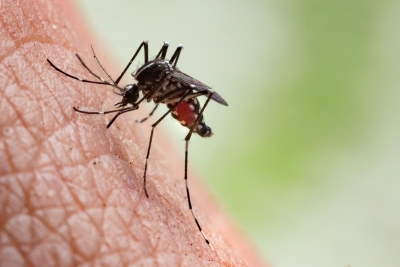
Are you someone who gets bitten by a lot of mosquitoes, even when those around you aren’t complaining much about it? Researchers from the Rockefeller University in New York have made some headway in the question of why some people are mosquito magnets. They have demonstrated through a study as to why certain people attract more of a species of these insects than others.
Round-robin tournament!
In their results published in Cell in October 2022, the researchers talk about their three-year study that helped them to their conclusions. Participants were asked to wear nylon stockings over forearms for six hours each day. After repeating the process over multiple days, the researchers tested the nylons over the next few years in a round-robin style tournament.
Using a chamber of their own design, the nylon stockings were paired against each other in all possible manners. As the chamber was divided into two tubes and each of these ended in a box that had a stocking, the researchers were able to observe as the Aedes aegypti mosquitoes flew towards one nylon stocking rather than the other, once they were introduced in the main chamber.
By the end of their study, researchers were able to see that one particular sample proved to be a compelling target for the mosquitoes. While this sample was four times more attractive to the mosquitoes than the second-most attractive sample, it was 100 times more attractive than the sample that proved to be least attractive to mosquitoes.
Mosquitoes track the scent
After sorting the samples into high and low attractors, the researchers resolved to find out what differentiated them. They discovered that people who are mosquito magnets produce carboxylic at a much higher level. These substances are in the moisturising barrier on the skin, called sebum, which helps form a protective coating on our skin and are also used by bacteria on our skin to produce our unique human odour.
By enrolling more people for a validation study, the team involved in this research were able to confirm their findings. While these are still early days, it opens up the potential of manipulating our skin biomes in order to be less attractive to mosquitoes. For now, the researchers are hoping that their paper will inspire researchers to test other mosquito species and find out whether this is universal to mosquitoes or specific to the Aedes aegypti species.
Picture Credit : Google




